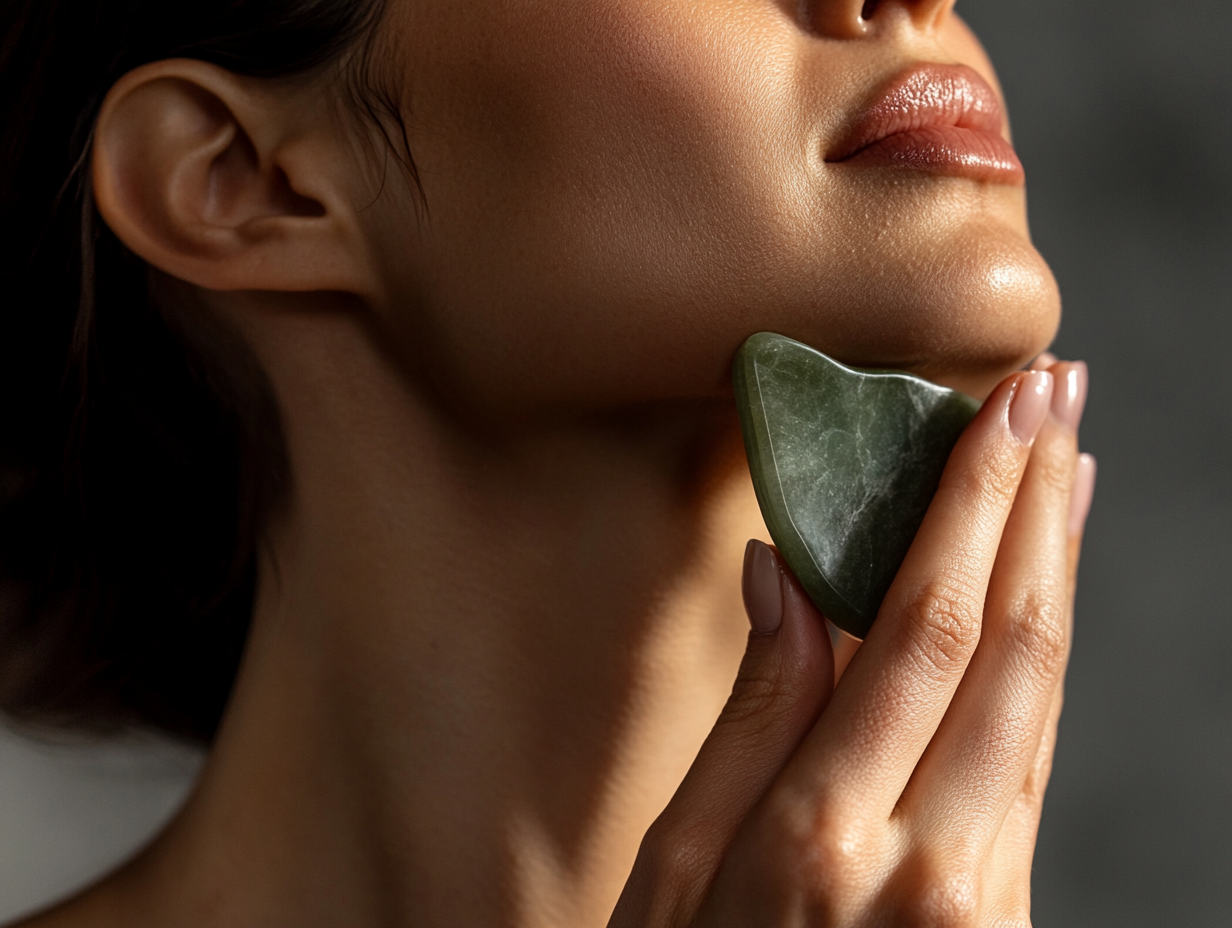THREE ‘CLEAN’ TIPS TO HELP YOU MANAGE STRESS AND SAVE YOUR SKIN.
Published: 02.12.2022
4 MIN READ
Let’s be honest, these past two years have been stress-full. Just when you think you can let your guard down and enjoy a little bit of sunshine, something new seems to come up and bite you in the butt.
Or is it just me?
We’ve talked ad nauseam about stress and how it affects your mind, your mental wellness, and your overall health, but something else that stress affects is your skin and your skin microbiome.
Yay…
Alrighty, so let’s dive into this nightmare by explaining how stress affects your skin, and talk a bit about the brain-skin axis.

The brain-skin axis is an interconnected, bidirectional pathway – meaning that the skin can communicate with the brain and vice versa. This pathway delivers the stress response from your brain to your skin, which can disrupt your skin barrier and microbiome.
Stress triggers the hypothalamus-pituitary-adrenal axis. So, when you’re stressed out, your sympathetic nervous system releases cortisol, adrenaline, and catecholamines, which can actually direct immune cells from your bloodstream into the skin and create a proinflammatory effect on your skin cells.
Let’s circle back to that first hormone, cortisol. Okay, so here’s the simple truth, your skin really only needs three things in order to thrive: oil, water, and microbes (the little bugs that populate and protect your skin microbiome).
And, guess what? Cortisol depletes them all.
Here’s how: when you’re super stressed out, cortisol actually slows the production of your skin’s natural (and super beneficial) oils. When this happens, your skin gets dry, irritated and inflamed, because your skin’s natural oils play a huge role in protecting your barrier and providing natural lipids to help seal in hydration and prevent TEWL (transepidermal water loss).
It doesn’t stop there.
Cortisol not only slows the production of good oils, but it also promotes the overproduction of sebum, a not-so-great oil that can exacerbate or cause acne.
Not to mention that this throws off your skin’s pH balance, which compromises your barrier and creates an inhospitable environment for the trillions of microbes that support your microbiome.
“If you’re not producing enough of those healthy fats and not maintaining a healthy barrier, though, you’re altering the terrain on which these microbes grow and thrive,” Says Dr. Whitney Bowe, a dermatologist and author. “Imagine stripping the soil of all the nutrients and seeing if your vegetable garden is going to grow. It’s the same for the skin.”
Finally, stress prompts the body to produce internal free radicals, which causes oxidative stress. When these free radicals target lipids, it can lead to acne, dehydration, weakened elastin and depleted collagen. All of which leads to the deepening of fine lines and wrinkles, and premature skin again.
Now that I’ve horrified you, I will say that this isn’t the case for all stress. Some stress is necessary and healthy, but chronic stress is the stuff to watch out for and the stuff you can try and do something about.
Here are three tools to help you reduce stress and its impact on your skin.
1) Clean up for skincare
Yes, cortisol will wreak havoc on your skin microbiome, but some of your skincare products may be exacerbating the problem. That squeaky-clean feeling most of us were raised to believe was a good thing, could actually be a sign that your skincare is stripping your skin barrier and compromising your microbiome.
First step is to check the ingredients in your skincare. Yes, even some ‘natural’ skincare products contain damaging chemicals such as propylene glycol, sodium lauryl, and butylparaben – to name a few.
Next, and I know this may be an unpopular suggestion for retinol lovers, but try removing or cutting back on barrier-degrading ingredients like glycolic acid, salicylic acid, benzoyl peroxide and retinol from your skincare routine.
Finally, if you’re reading the label and it says the word ‘fragrance’, do yourself a favor and throw it out – better yet, empty it and recycle the container.
And if you’re looking for truly clean, microbiome friendly skincare products we recommend our morning and nighttime oil cleansers, Halo and Prism.
2) Tidy your mind
That’s right, we’re going to talk about meditation again. Whether you’re a fan of meditation or you absolutely hate it, there’s no question about the benefits that can come from quieting your mind for even as little as five minutes.
Spending some dedicated quiet time alone with yourself can help you sift through any residual stress, pending anxiety or lingering tension.
Body scans are a great way to visualize any tension or stress your body may be holding, then consciously letting it go. You can also do a simple meditation where you focus on one point in your body as a way to practice focus.
Meditation may also lower overall catecholamine levels – another stress hormone – in people who do it regularly. So, no matter which way you meditate, even if it’s just closing your eyes and focusing on your breath, spending a few minutes every day in meditation can help you better manage stress and keep chronic stress at bay.
3) Breathe-tox your body
Yes, I know that Breathe-tox is not a real word, but the act of breath work is one of the most underrated tools to help combat stress.The best part is it can be done anytime anywhere and takes less than two minutes to complete.
I suggest mixing breath work into your daily routine, ideally first thing in the morning right before your morning meditation, or mixing it into your cold shower.
Breath work is as simple as focusing on your breath; breathing in for the count of seven, then holding your breath for the count of four, and exhaling for the count of eight. Repeat that six times and you’ll feel your body breathe-toxed.
Okay, I’ll stop trying to make breathe-tox happen.
All in all, breath work can be your key to reducing stress for both your brain and your skin anytime, anywhere, any day.
Now remember, not all stress is bad stress, it’s chronic stress that you want to look out for.
And, if you’re finding that you’re stressed on a daily basis, try not to panic and stress yourself out even more. Simply follow one or all of the tools above, and do your best for yourself and your skin. Your future self will thank you.




